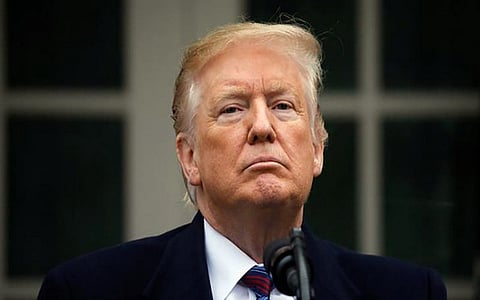
- Home
- Live Blog
- Breaking News
- Top Headlines
- Cities
- NE News
- Sentinel Media
- Sports
- Education
- Jobs

Beijing: The Chinese government on Saturday confirmed the progress of trade agreement negotiations with the US and revealed that technical consultations on a part of the agreement’s text had been completed.
Vice Premier Liu He, China’s top representative at the negotiating table, held a telephone conversation with US Trade Representative Robert Lighthizer and Treasury Secretary Steven Mnuchin on Friday night. “In the phone talks, the two sides agreed to appropriately address each other’s core concerns, and confirmed that the technical consultations on part of the text of the agreement have been basically completed,” state-owned Xinhua news agency said.
The two sides have reached consensus on the US importing Chinese-made cooked poultry meat, the equivalence of catfish product supervision systems, China’s lifting of the ban on US poultry exports, as well as on applying the public health information system of meat products.
Chinese Trade Minister Zhong Shan, People’s Bank of China Governor Yi Gang, and National Development and Reform Commission´s Vice Chairman Ning Jizhe were also a part of the talks, which are expected to continue soon, Efe news reported. Following this call, US President Donald Trump, in statements from the White House, remarked that negotiations were going very well, and “a lot of good things are happening with China. They want to make a deal very badly”.
These talks are aimed at putting the final touches to an agreement that Trump and his Chinese counterpart, Xi Jinping, could sign during the Asia-Pacific Economic Cooperation (APEC) summit, to be held in Santiago de Chile on November 16 and 17. Earlier this month, Trump announced a partial agreement for a truce in his trade war with China, which has been going on for nearly a year and a half and set aside his plans to raise tariffs on imports from the Asian country. For its part, China committed to increase its purchases of US agricultural products to between $40 billion and $50 billion.
Trump said that it includes some measures related to the devaluation of the Chinese currency and the subject of intellectual property, though it does not deal with the forced transferal of technology to China, a subject to be discussed in the second phase. Nor does the accord settle the matter of vetoes on exports affecting China’s giant Huawei telecom company, something being negotiated in a parallel process. The International Monetary Fund (IMF) has warned about the global effects of the trade war between the two economic titans and has consequently lowered the growth forecasts both for the US and China during this year and the next. (IANS)